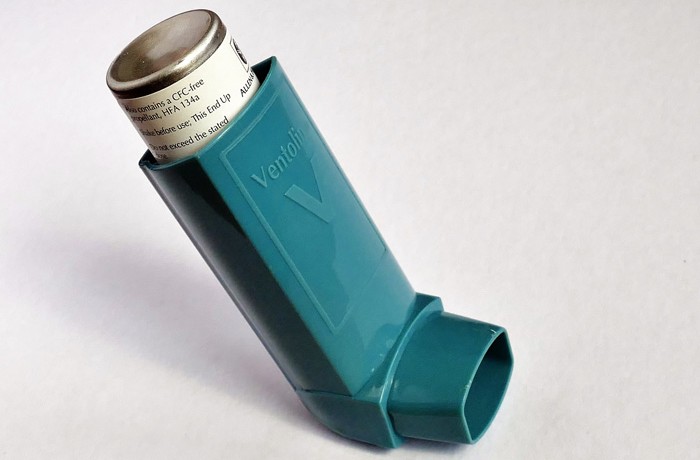in Acupuncture
How Acupuncture Can Help Ease the Symptoms of Asthma

According to the National Review of Asthma Deaths (NRAD), the number of people affected by asthma in the UK is the highest in the world, with 5.4 million people currently receiving treatments for Asthma, including 1.1 million children. In 2014, the most recent data available indicated 1216 people died from asthma in 2014. The NHS spends around 1 billion a year treating and caring for people with asthma.
What is Asthma?
Asthma is a chronic condition which affects the airways (bronchioles), the small tubes that carry air in and out of the lungs. Asthmatic attacks obstruct the air flow to the lungs. The airways in asthma sufferers become tight and narrow in response to certain triggers such as infections, exercise, and sudden change in temperature or allergens. When this happens, the muscles around the airways tighten and become narrower. The lining of the airway swells and produce sticky mucus. As the airway narrows, it obstructs the air flowing in/out. Thus, the person finds difficulty in breathing, causing symptoms such as wheezing, coughing and short of breath. Sinus symptoms could be congestion, sticky discharges, pain and pressure. Sinus inflammation could also trigger migraine or sinus headache.
Common triggers for asthma include pollen, dust mites, cigarette smoke, household chemicals, cosmetics, and certain medications such as non-steroidal anti-inflammatory drugs (NSAIDs) e.g., ibuprofen. A person with history of asthma, eczema or hay fever in the family has more probability of developing asthma.
In Western medicine, there is no cure for asthma. Medications are developed to help sufferers manage the condition. Devices such as inhalers deliver small amount of medication into the lungs to relax muscles or calm inflammation in the airways.
There are 2 main types of asthma inhalers – relievers and preventers. The reliever inhalers are blue and they work by opening up the airways, causing muscles to relax and making breathing easier. The Preventers come in red, brown or orange inhalers and they work over a period of time to calm inflammation in the airways, making them less likely to react badly against an asthma trigger.
Chinese Medicine (TCM) Views
Clinical trials have been conducted to show that acupuncture has a therapeutic effect on bronchial asthma. The following article at this website reviews a number of clinical trials and outcome studies in the use of acupuncture to treat asthma.
The cause of asthma in Chinese medicine is the presence of phlegm. The water passage is controlled by 3 organs in the body, i.e., lung, spleen and kidney. The lung regulates the fluid in the upper part of the body, the spleen transport and transforms water in the middle part of the body, and the kidney governs water metabolism in the lower half of the body. Imbalance of yin and yang in these 3 organs may lead to stagnation of water circulation in the body, leading to formation of phlegm which is stored in the lungs. This becomes the main cause of recurrent asthma attacks.
Chronic asthma leads to deficiency of lung, spleen and kidney. Therefore lung deficiency causes difficulty inhaling and the kidney deficiency makes it difficult for it to receive or ‘grasp’ the air. This is further complicated if the spleen is also deficient, affecting its transformation and transportation of fluid, resulting in formation of phlegm. Thus phlegm is formed in the spleen and stored in the lungs. Therefore the condition becomes more complicated, as the underlying syndrome represents a deficient condition while the symptoms show an excess condition.
The treatment principle in Chinese medicine is to resolve the phlegm (excess ) , whilst in deficiency pattern, the treatment is to strengthen and ‘tonify’ the weakened Qi (energy) of the lung, spleen and kidney. In Chinese medicine allergic condition such as asthma and hay fever are due to immune system deficiency. Thus, a weakened immune system makes one more susceptible to external pathogenic factors like pollen or other allergens. Therefore the TCM treatment for asthma includes strengthening the immune system.
The effects of acupuncture are cumulative. One should notice a reduction and frequency and severity in attacks. Acupuncture has the positive effect of strengthening the person’s constitution and overall health, so the allergic response is minimized.
Case history
A young lady with a history of chronic asthma came to see me for acupuncture treatment. She had caught a cold which exacerbated her asthma attack. She suffered a shortness of breath and was finding breathing difficult; she was wheezing quite badly. The cold weather did not help and she was emotionally stressed, which also affected her condition. Her chest was tight, her symptoms were worse at night. She had an inhaler to help with her breathing. The diagnosis was excess phlegm formation with an underlying deficient lung qi(energy), kidney and spleen. She was treated accordingly with acupuncture. She reported that her chest was less tight and her breathlessness was reduced. After subsequent treatments, she stopped wheezing and she felt better overall and her energy improved.
This article was written by Jennie Chew, Acupuncturist.
- Deepen Embodiment: Somatic Breathing with the Realization Process - 20th June 2025
- How Massage Transforms Muscle and Physical Health - 16th May 2025
- What is Traditional Chinese Medicine (TCM)? - 29th April 2025
